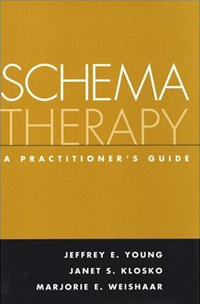This post is the fourteenth in a series that draw on the field of schema therapy, an approach to addressing negative thinking patterns that was devised by Dr. Jeffrey Young. You can find an introduction to schemas and schema therapy, a list of schemas, and links to other schema articles on The Willpower Engine here.
The Need for Approval schema is all about appearances and other people’s opinions. This might make it easy to think of it as just being shallow, but a person with a Need for Approval schema has gotten deeply involved with and affected by the idea that love needs to be won from other people, that it is not something that they deserve or are entitled to automatically, and that they can’t fill that void themselves.
Need for Approval schemas often arise in childhood, when children feel that a parents or other important figures in their lives only show love or affection when the child is behaving a certain way.
The schematherapy.com site elaborates on some of the ways a Need for Approval schema gets expressed: “Sometimes includes an overemphasis on status, appearance, social acceptance, money, or achievement — as means of gaining approval, admiration, or attention (not primarily for power or control). Frequently results in major life decisions that are inauthentic or unsatisfying; or in hypersensitivity to rejection.”
Of course, there’s nothing wrong with wanting others to think well of us as a rule. Approval-seeking only becomes a problem when it gets in the way of something more important. Dr. Young and colleagues describe people with this schema seeking approval “at the expense of fulfilling their core emotional needs and expressing their natural inclinations,” though I wonder if the same thing sometimes happens where the damage is to someone else, as with bullies or people who perpetrate hate crimes. My sense is that a bully might feel such a desperate need for approval from peers that they might victimize someone else to get it, or that someone with a phobia about gay men might hurt a gay man just to get validation from similarly homophobic friends or acquaintances. But this is just my own speculation.
Overcoming a Need for Approval Schema
The key problem in a Need for Approval schema is an inability to feel emotionally self-sufficient, to be happy with who we are. My understanding is that when we learn this skill as children, we gain a sense that we are worthwhile and good from parental love. If a child is powerfully convinced of the importance of their parents (as most children seem to be), then the parents’ attitudes toward us would seem to be the most important clue we can take as to our own self worth.
But if this ability isn’t developed as a child, we can still develop it as adults. As is the case with many kinds of personal change, often a good cognitive therapist can be a big help, and while self-worth isn’t something we can prove inarguably, it is something we can demonstrate to ourselves. When we focus on the things we’ve accomplished that we’re proud of, or the things in our lives that we’re happy to have, we’re more likely to feel good about who we are than if we spend a lot of time reviewing what we see as mistakes, shortcomings, and flaws.
That’s not to say we should ignore any negative thoughts we may have about ourselves, but it certainly is a caution that letting negative thoughts about ourselves become broken ideas is especially harmful to our ability to be emotionally self-sufficient. It’s one thing to say “I forgot to do that errand I promised to do, and that’s a problem.” and another to say “I forgot to do that errand I promised to do: what a loser I am” (labeling) or “I never do what I say I’m going to do.” (overgeneralization) or “I forgot to do that errand: now everyone thinks I’m an idiot.” (mind reading).
Thus this process of building a sense of self has two parts: consciously reflecting on good things about ourselves and our lives, and being aware of our thinking processes to be able to stop broken ideas from forming regularly. Over time this gets easier, and our sense of ourselves changes.
Photo by Sudhamshu












